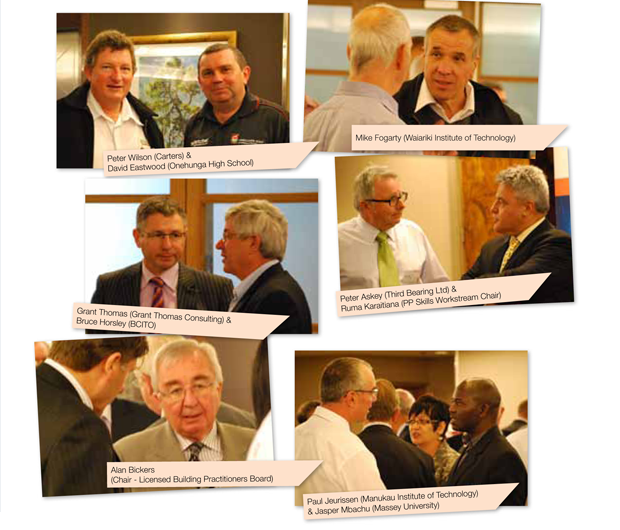
VALUE BUILDER – GARRY FISSENDEN
CHIEF EXECUTIVE, THE SKILLS ORGANISATION
|
Getting it right, meaningfully – Garry talks about the importance of developing pathways to higher level qualifications to increase capability and productivity.
|
A momentous year
The word momentous comes to mind when I look back on 2012. What was the Electrotechnology Industry Training Organisation (ETITO), with coverage for eight industries, in September became The Skills Organisation, which now covers 19 industries. This growth has also led to the development of a Specialist Trades division within the organisation.
The Specialist Trades division includes the telecommunications, electrotechnology, plumbing, drain-laying, gas-fitting, roofing, cranes, elevated work platforms, scaffolding, rigging and industrial ropes industries. Our other industries now include the ambulance, contact centre, financial services, offender management, public sector, local government, real estate and security industries.
Development pathways
As an ITO, one of our primary responsibilities is to help businesses increase productivity and workplace performance through the achievement of nationally recognised qualifications. The Skills Organisation is focusing on achieving this through partnering with organisations to provide development opportunities for staff and by providing a development pathway for learners from national certificate level through to degree level study. To provide these pathways The Skills Organisation is building innovative partnerships with Industry Training Providers (ITPS) to maximise learning opportunities and reduce barriers to success for learners.
The Skills Organisation recently signed a Memorandum of Understanding (MOU) with Whitireia New Zealand and the Open Polytechnic of New Zealand that includes a focus on the development of pathways to higher-level qualifications in areas of relevance for our industries.
Increasing workforce performance
We’ve also entered similar agreements with Te Whare Wananga o Awanuiarangi: indigenous university to better respond to the educational needs of learners who are already in employment. All of these partnerships aim to provide a pathway for trainees to progress through. We liken this to delivering an education ladder for the learner where each step increases their capability and delivers increased workplace performance too.
We also partner with business to provide New Zealanders with more opportunities to learn while they work. An example of this is Vodafone New Zealand who mapped The Skills Organisation’s National Certificate in First Line Management onto their Vodafone Retail Manager – Core Skills Programme. The initiative was recognised at the NZ Association of Training Development Awards where they received the Learning and Development Innovation Award.
The Skills Organisation has additionally been working with Vodafone to select Vodafone Technology Apprentices. Ten people have been selected to join this new apprenticeship scheme where they will spend the next two years working with Vodafone’s technology team whilst studying towards an NZQA accredited National Certificate in Telecommunications (Level 3).
The Skills Organisation will continue to develop partnerships with other organisations in order to improve productivity in the workplace. By increasing opportunities and developing pathways to higher level qualifications we will see businesses increase levels of productivity and efficiency.
Back to top
|









 APPOINTMENT
APPOINTMENT